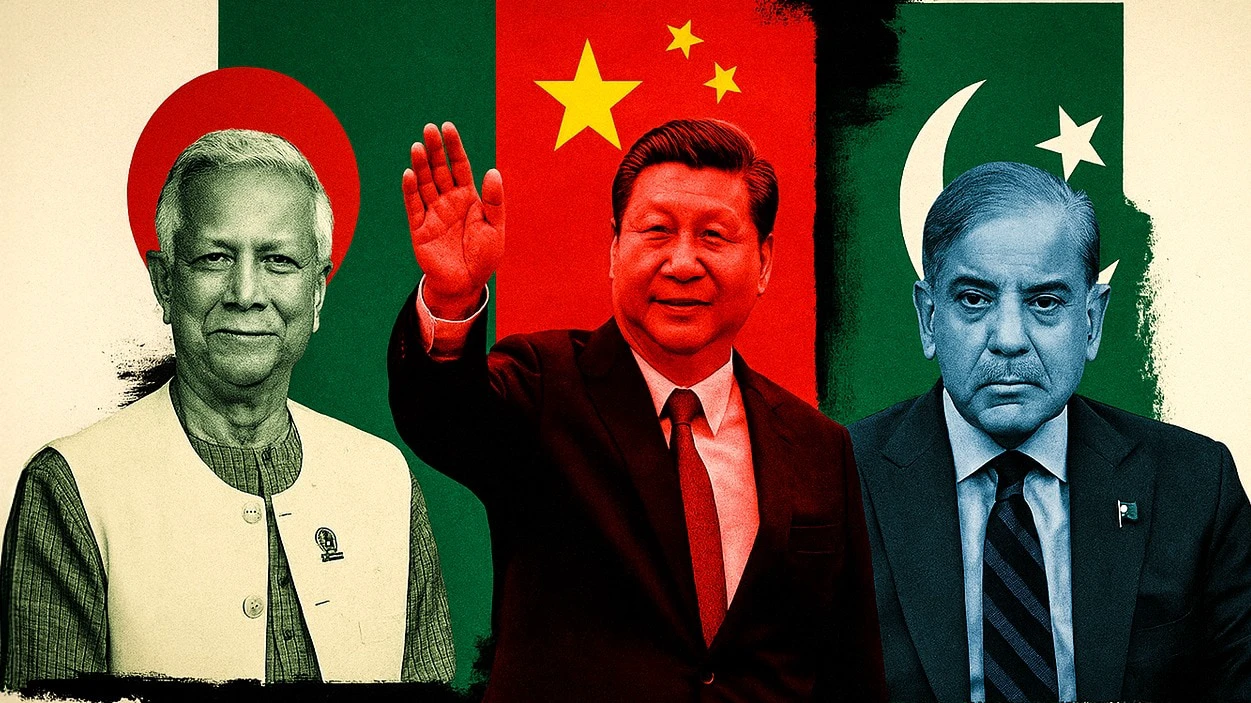Pakistan and China are working to create a new regional bloc to replace Saarc, in which India was a prominent member. The talks on the regional bloc between Islamabad and Beijing are at an advanced level, according to a report in The Express Tribune of Pakistan.
Bangladesh too was part of the recent meeting to create the new regional bloc that was held in China’s Kunming on June 19, according to the report.
“The ultimate goal of the meeting in Kunming on June 19 was to invite other South Asian countries, which were part of Saarc, to join the new grouping,” Karachi-based The Express Tribune reported.
The meeting in Kunming followed a similar China-Pakistan-Afghanistan trilateral held in May, which focused on expanding the China-Pakistan Economic Corridor and enhancing regional collaboration in the Taliban-ruled Islamic Emirate.
The South Asian Association for Regional Cooperation (Saarc) was formed on 8 December, 1985, through the adoption of its Charter in Dhaka, Bangladesh. There were seven founding members, while in 2007.
WHY SAARC HAS BEEN INACTIVE
The Saarc has been inactive since 2016.
Although SAARC leaders haven’t met since the 2014 Kathmandu summit, Indian PM Narendra Modi initiated the first-ever SAARC video conference in 2020 to propose a COVID-19 Emergency Fund. He pledged $10 million as India’s contribution.
The 19th Saarc Summit was scheduled to be held in Islamabad in November that year, which India decided to boycott due to the in which 17 Indian soldiers were killed.
Afghanistan, Bangladesh, and Bhutan also pulled out, citing concerns about terrorism and regional interference. The summit was cancelled-and it has not been rescheduled since.
The Express Tribune report said that both Pakistan and China “are convinced that a new organisation is need of the hour for regional integration and connectivity”.
It says Saarc members, including Sri Lanka, Maldives and Afghanistan, are expected to be part of the new grouping.
Bangladesh has, however, dismissed the idea of any emerging alliance between Dhaka, Beijing and Islamabad, saying the meeting in China’s Kunming between the three countries was not “political”.
“We are not forming any alliance,” Dhaka’s foreign affairs adviser M Touhid Hossain said, when asked for comments about the meeting in Kunming on June 19.
“It was a meeting at the official level, not at the political level,” Hossain said, adding that there was “no element of formation of any alliance”.
The report quotes diplomatic sources to say that India would be invited to join the new bloc but “given its divergent interests, it is unlikely to respond positively”.
While India has tried to use Saarc for better regional cooperation and connectivity, Pakistan has only tried to corner gains.
It was a beneficiary of the Saarc Visa Exemption Scheme, which India .
The Saarc was formed to foster regional harmony and economic integration among its member states.
India, as the largest member, significantly contributed to Saarc by providing substantial funding, and spearheading initiatives like the Saarc Development Fund and the South Asian University in New Delhi to promote education and economic cooperation among member states.
DELHI PUSHED FOR SAARC COOPERATION. ISLAMABAD BLOCKED IT
However, Pakistan’s actions, particularly its use of the Saarc veto to block initiatives like trade protocols and anti-terrorism mechanisms, hampered the organisation’s effectiveness.
For example, Pakistan vetoed the Saarc Motor Vehicles Agreement during the 2014 Saarc Summit in Kathmandu. It blocked the proposed framework for cross-border movement of passenger and cargo vehicles among member states. This obstruction by Pakistan led India, Bangladesh, Bhutan, and Nepal to pursue the sub-regional BBIN Motor Vehicles Agreement in 2015.
Meanwhile, India, Nepal, and Bhutan advanced cooperation in infrastructure and social projects, along with joint efforts in disaster management and renewable energy generation under the Saarc umbrella.
Tensions escalated after the 2016 Uri attack, leading India and other members to boycott the Islamabad summit, resulting in Saarc’s inactivity since 2014. Pakistan’s support for cross-border terrorism and refusal to cooperate on key issues stalled the ambitions of the multilateral grouping.
